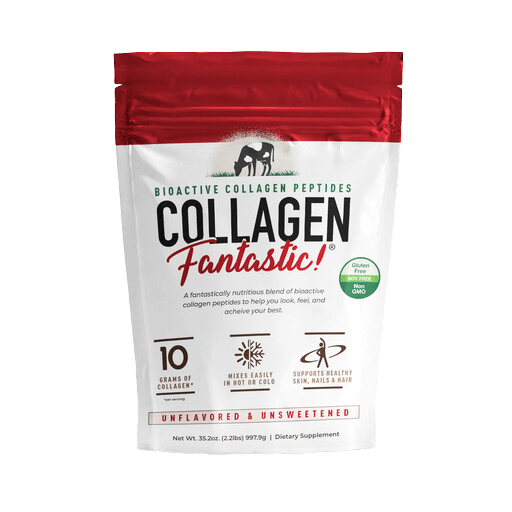Key Takeaways
-
Sleep is when your body repairs and grows, driving muscle recovery and protein synthesis.
-
Poor sleep disrupts hormones, slows metabolism, and reduces protein absorption, limiting results.
-
Combining quality sleep with optimal protein intake creates the perfect environment for long-term health and performance.
Introduction
Most people focus on their workouts, diet, and supplements when trying to build strength or improve health. But there’s one essential element that often gets overlooked: sleep.
Sleep isn’t just “rest.” It’s a complex biological process where your body repairs tissue, builds muscle, balances hormones, and consolidates memory. You can have the best protein powder and a perfect training plan—but without proper sleep, you’ll never fully recover or perform at your best.
At Fantastic Nutrition, we believe in a holistic approach to health and performance. Protein powers your recovery, but sleep is what allows your body to use that protein efficiently. Together, they create the foundation for true progress and longevity.
Why Sleep Is the Ultimate Recovery Tool
During sleep, your body enters an anabolic (growth-promoting) state. This is when it releases hormones like growth hormone and testosterone, both of which play vital roles in muscle repair and protein synthesis.
Think of it like this: when you train, you’re breaking your muscles down; when you sleep, you’re building them back up—stronger and more resilient. Without adequate rest, that rebuilding process stalls, leaving you fatigued, sore, and more prone to injury.
Research consistently shows that sleep deprivation impairs muscle recovery and reduces athletic performance. Even one or two nights of poor sleep can lower energy, coordination, and motivation, making it harder to stay consistent with your health goals.
The Connection Between Sleep and Protein Synthesis
Protein synthesis is the body’s process of repairing and building new muscle tissue. This happens all day long, but it peaks during deep stages of sleep, particularly during slow-wave sleep (SWS)—the most restorative part of the night.
Here’s why:
-
Growth hormone secretion surges during deep sleep, signaling the body to repair tissue and build muscle.
-
Amino acid absorption improves overnight, helping the body use the protein you consumed during the day.
-
Cellular repair and regeneration accelerate, aiding recovery not just for muscles, but for the immune system and organs too.
In simple terms, you don’t grow in the gym—you grow while you sleep.
What Happens When You Don’t Sleep Enough
When sleep is cut short or interrupted, your body misses critical windows for recovery. The consequences go far beyond fatigue:
-
Reduced muscle repair: The body produces less growth hormone and testosterone, limiting protein synthesis.
-
Increased cortisol: This stress hormone rises with sleep deprivation, promoting muscle breakdown and fat storage.
-
Slower metabolism: Poor sleep reduces insulin sensitivity, making it harder to manage weight.
-
Weakened immune system: You become more prone to illness and inflammation.
Chronic lack of sleep can undo the benefits of even the best diet and training routine. Over time, it contributes to muscle loss, weight gain, and premature aging—the exact opposite of what your hard work is meant to achieve.
The Role of Nighttime Protein
One way to optimize recovery during sleep is by providing your body with a steady stream of amino acids overnight. Taking a slow-digesting protein, such as casein or a grass-fed blend, before bed can enhance muscle protein synthesis while you rest.
For example, a small shake containing 20–30 grams of protein before sleep has been shown to:
-
Increase overnight protein synthesis rates.
-
Reduce muscle breakdown.
-
Support greater lean mass over time.
Adding collagen peptides can also support joint recovery and connective tissue repair, making it a great nighttime combo.
Sleep, Hormones, and Metabolism
Sleep is tightly connected to your body’s hormonal balance. During deep sleep, the body regulates key hormones related to hunger, stress, and energy:
-
Leptin and ghrelin control appetite—poor sleep makes you crave more sugar and carbs.
-
Cortisol (the stress hormone) rises when you’re sleep-deprived, breaking down muscle and increasing fat storage.
-
Insulin sensitivity decreases, making it harder to maintain stable blood sugar levels.
Getting enough sleep helps reset these hormonal systems, improving energy, mood, and metabolism.
Sleep and Athletic Performance
For athletes and active adults, sleep is as important as training itself. Studies show that athletes who sleep more:
-
Perform better in strength and endurance exercises.
-
React faster and make better decisions.
-
Experience fewer injuries.
Even recreational exercisers notice differences. A consistent 7–9 hours of quality sleep can boost energy, reduce soreness, and enhance motivation to train.
Conversely, sleep-deprived individuals experience slower reaction times, less focus, and poorer recovery after workouts.
Nutrition Tips to Support Better Sleep and Recovery
Pairing proper nutrition with good sleep habits amplifies recovery. Here are some science-backed tips:
1. Include Protein at Dinner
A protein-rich evening meal (like grilled chicken, fish, tofu, or lentils) provides amino acids for overnight repair.
2. Try a Nighttime Shake
Mix a scoop of grass-fed whey or casein with water or milk about 30–60 minutes before bed. Add collagen peptides if joint recovery is a goal.
3. Avoid Caffeine Late in the Day
Caffeine blocks adenosine, a chemical that promotes sleepiness. Limit coffee or pre-workouts after 2 p.m.
4. Stay Hydrated—but Time It Right
Dehydration can disrupt sleep quality, but too much fluid right before bed can wake you up during the night.
5. Mind Your Magnesium
Magnesium supports relaxation and may improve sleep quality. Look for foods like almonds, spinach, and pumpkin seeds—or consider a supplement.
The Importance of Sleep Consistency
Just like your diet, consistency is everything when it comes to sleep. Going to bed and waking up at the same time each day helps regulate your circadian rhythm—the internal clock that controls hormone release, digestion, and energy levels.
A consistent routine helps your body predict when it’s time to wind down, making it easier to fall asleep and stay asleep. Over time, this regularity enhances the benefits of both sleep and protein intake.
How Stress and Lifestyle Impact Sleep Quality
Modern life often gets in the way of recovery. Long work hours, late-night screens, and chronic stress all interfere with quality sleep. When stress levels stay high, cortisol remains elevated, which suppresses melatonin (your sleep hormone).
To improve sleep quality, consider integrating:
-
Digital downtime: Avoid screens 30–60 minutes before bed.
-
Mindful relaxation: Try breathing exercises, meditation, or light stretching.
-
A dark, cool environment: Your body sleeps best at around 65°F (18°C) in total darkness.
These small lifestyle shifts can dramatically improve your body’s ability to recover and utilize the protein you consume.
Sleep, Recovery, and Longevity
Long-term health depends on your ability to recover. Adequate sleep doesn’t just enhance athletic performance—it reduces the risk of chronic diseases, supports cognitive function, and slows biological aging.
In fact, studies show that people who consistently get 7–8 hours of sleep per night have lower rates of cardiovascular disease, diabetes, and cognitive decline. When combined with a nutrient-rich diet and sufficient protein intake, the result is a body that’s stronger, sharper, and more resilient with age.
Conclusion
Protein builds your body—but sleep rebuilds your life. Every night, your body uses the nutrients you consume to repair muscles, balance hormones, and restore energy. Without enough rest, even the cleanest, highest-quality protein can’t do its job.
At Fantastic Nutrition, we believe the best results come from harmony—fueling your body with clean, grass-fed protein and giving it the time to rest and recover deeply. True wellness isn’t just about what you do when you’re awake—it’s about how you nourish yourself while you sleep.
Frequently Asked Questions (FAQs)
1. How many hours of sleep do I need for proper recovery?
Most adults need 7–9 hours of sleep per night for optimal recovery, hormone balance, and muscle growth.
2. Should I take protein before bed?
Yes, a small serving (20–30 grams) of slow-digesting protein before sleep helps promote overnight repair and protein synthesis.
3. Does poor sleep really affect muscle growth?
Absolutely. Sleep deprivation reduces growth hormone, testosterone, and protein synthesis, limiting recovery and performance.
4. Can supplements help improve sleep quality?
Some nutrients—like magnesium, collagen, and certain amino acids (such as glycine)—may support better relaxation and deeper sleep when combined with good sleep hygiene.











